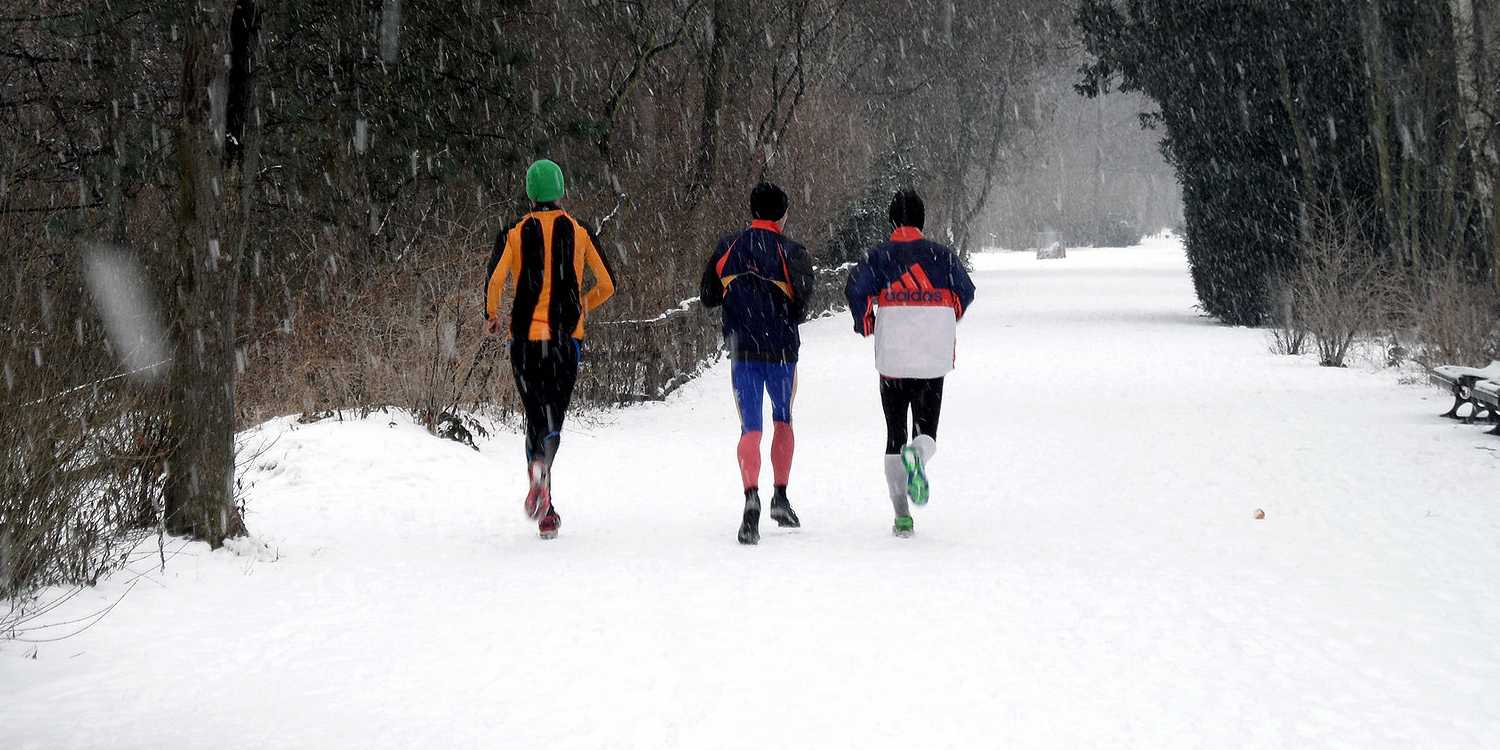
Sometimes it’s hard to stay motivated during the cold months with the next race still so far away. We’ll give you a few winter training tips on how to stay motivated and stay fit until it gets warmer outside.
It’s almost never as bad as you think it is to be outside. Once you’re moving you automatically warm up and your body adapts quite quickly to training in cold conditions if you give it a bit of time. Some of the most fun bike rides I can remember were long rides with my friends in the worst conditions, like just above zero, pouring rain and spray from the bike in front of you in your face for 3 hours. There’s just something great about battling the elements with your friends and chatting about an epic ride at the cafe afterwards.
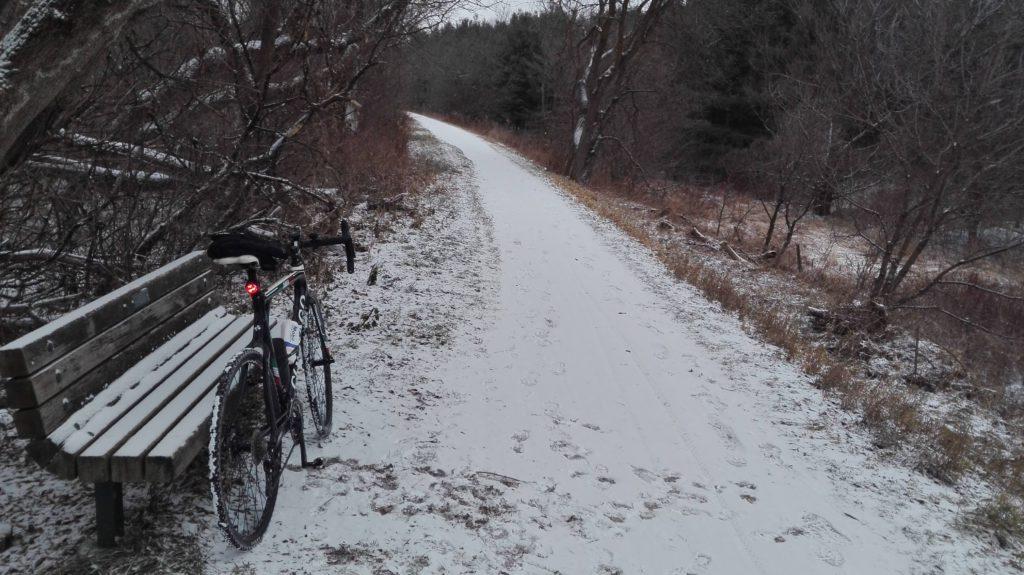
Many runners easily overheat in warm to hot conditions and the great thing about winter is that that’s not a problem as long as you dress appropriately. If you’re a triathlete it’s generally easier to run in cold conditions than it is to bike. During running our bodies usually generate more heat compared to cycling, plus you’re not going as fast as on the bike so the wind is not cooling you down as quickly.
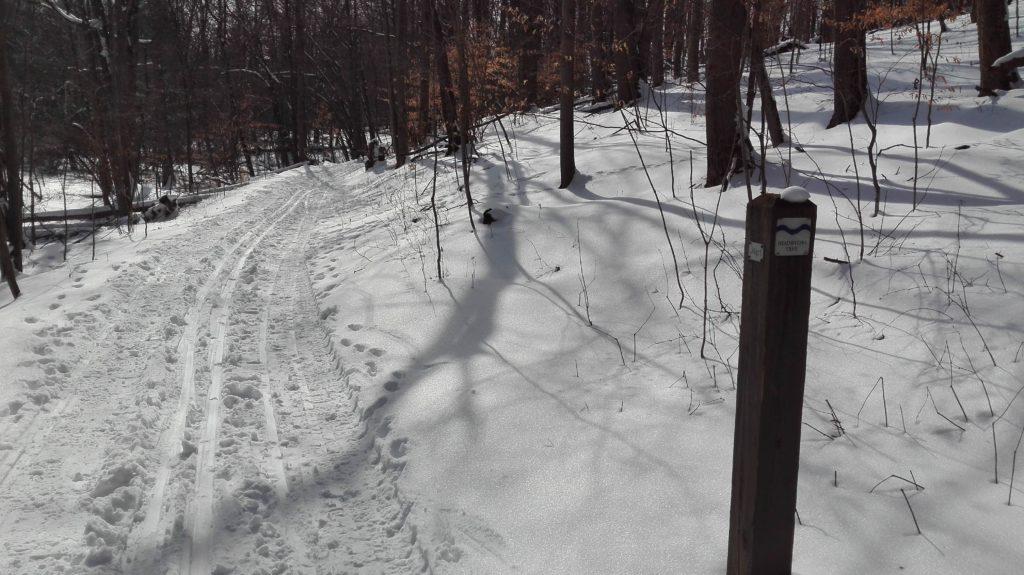
This is a great time of the year to focus on being a well rounded and healthy athlete. Do some other activities than what you usually do and try something new. Cross country/downhill skiing, team sports, yoga, strength training, and swimming are all great options. Diversity in training can keep you more balanced, help prevent injury, and keep you motivated while you work to get a great base for more specialized training later.
It can be a great motivator to commit to doing a race in the spring. Having a fixed date at which you want to be in top shape as opposed to the vague goal of being fit in spring (which is when exactly?) can do wonders.
Training indoors can be extremely efficient. The controlled environment of a bike trainer or a treadmill allows you to do very specific intervals that you often wouldn’t be able to do outside because of traffic, red lights, variations in gradient etc. Personally, I’m a big fan of Trainerroad as their workouts have really worked to raise my power on the bike. Zwift is also a great option.
This one is for those that are super motivated. There is no prize for being in peak shape two months before race season and being on a downward trajectory and/or burned out when the actual races are happening. Base season is about building the foundation for harder training closer to your race season. Think of your fitness as a cake. Base is the foundation and high end intervals are the icing on the cake. A cake that’s just icing and no foundation is no good. Focus on being consistent in your training and don’t overdo it with the high intensity intervals.
Thanks for reading our winter training tips!
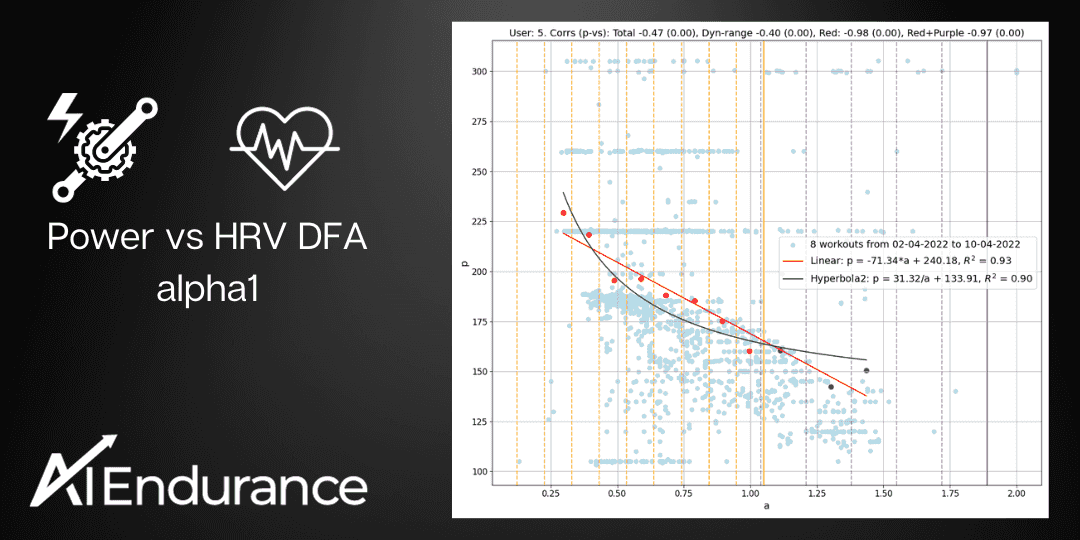
by Stefano Andriolo. We demonstrate a universal relationship between cycling power and DFA alpha 1 from every day workout data that allows accessible and regular tracking of aerobic and anaerobic thresholds without the need of an exercise lab or even a dedicated testing protocol.
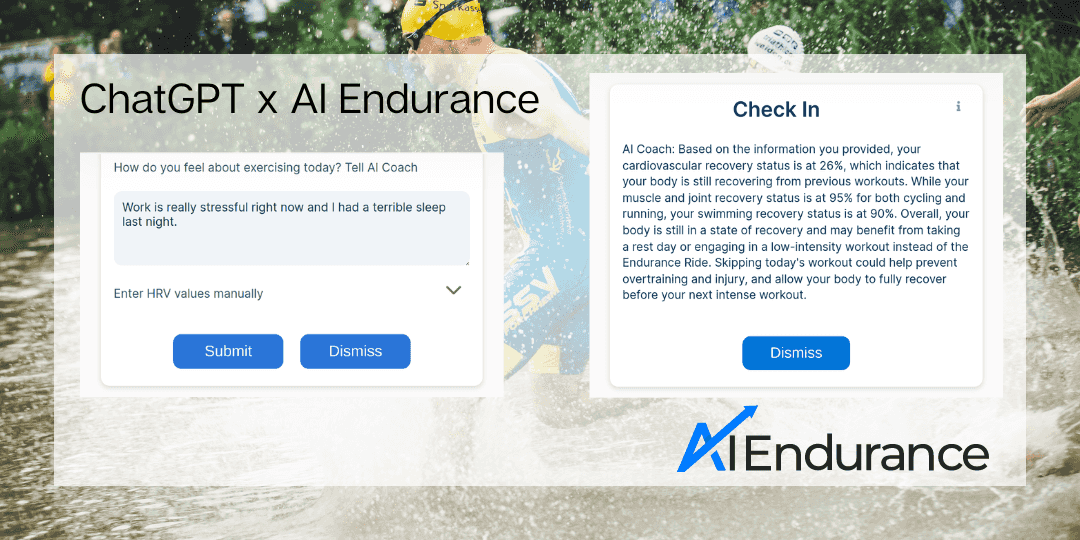
We explain how AI Endurance uses ChatGPT to help guide your triathlon, running and cycling training.

by Grant Paling. So you’ve read about my race. If you stuck with it, I know the report was quite epic (and that was the edited version!) so if you read it all, thank you! Having told you what happened in the race, I wanted to share a bit about how I used AI Endurance to prepare my race strategy.

When it comes to sport and fitness, it’s not all about training hard but it’s about training smart. We are often asked about training plans and if they are worth your money to invest in them.